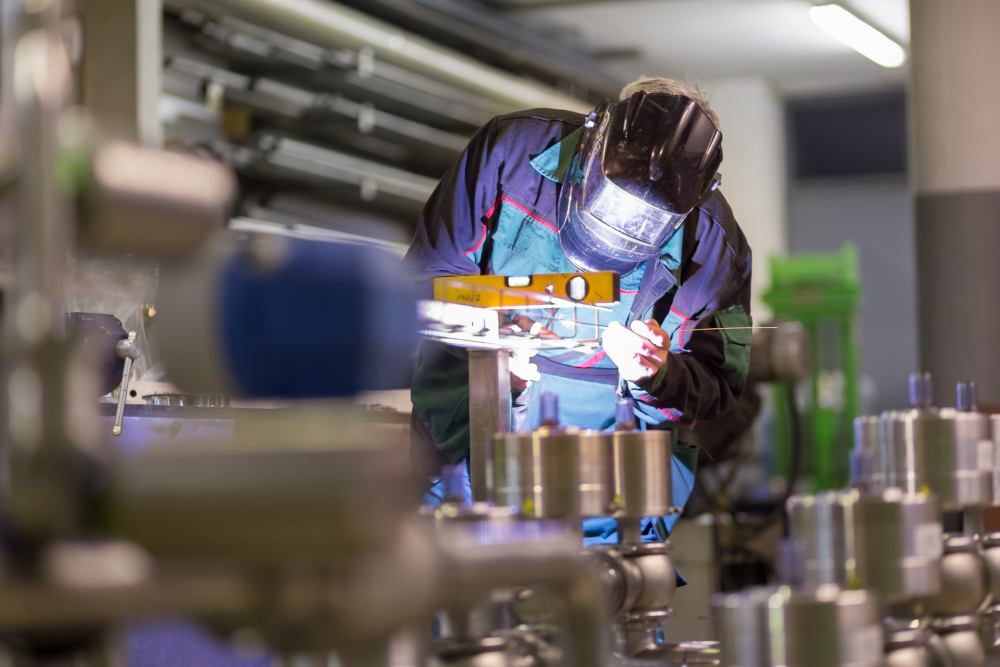
The pandemic and the changing geopolitical landscape is forcing decision-makers here in the UK to re-examine our economic model and reimagine Britain’s future in the world. International public health crises, the defeat in Afghanistan, and now a war in Ukraine have shown that the old assumptions about the world no longer apply. These events have had and will have a direct impact on the UK's economic outlook so it is important that the British government makes the right decisions to ensure that the UK can remain competitive and enjoy decent standards of living long into the future.
The pandemic revealed how exposed Britain was to insecure global supply chains. The first duty of any government is the protection and welfare of its people, but the UK was reliant on imported PPE, ventilators and other vital equipment from distant countries because we did not have the capacity to produce it in the UK in adequate numbers. The consequences of deindustrialisation and successive governments' acceptance of Britain as a deindustrialised nation meant that, when crisis struck, we were utterly dependent on the goodwill and supply from other nations. This is surely an unacceptable position that must be remedied for the health security of the nation. The World Health Organisation has said that pandemics are likely to increase, and so our own capacity must increase too. Why can't Britain produce its own ventilators, which we can export to the rest of the world? Export-led growth is essential for our own wealth and health.
This will require a considerable change in focus on the supply side policies adopted by governments. The government has offered a 'super-deduction’ tax incentive for plant and machinery investments up to 2023. This is a step in the right direction considering that almost two-thirds of research and development taking place in the UK is manufacturing and innovation – and the two are intrinsically linked. But the real problem is that much of the research and development will take place in the UK but will then be manufactured abroad.
As the years progress, we need to see the government adopt measures to ensure that increased investment, research and development remains in the UK. That is going to require making manufacturing in the UK profitable through a competitive exchange rate policy – this will ensure manufacturing happens on a scale that enables us to reasonably compete with countries such as Germany and Japan, and even China and the United States, on a more equal footing. We also need to ensure that our tax system remains competitive to attract new investment and to enable us to compete with major economies and emerging economies.
The defeat in Afghanistan and the Russian invasion of Ukraine is leading many western nations to reconsider their levels of defence spending. This will place additional burdens on the Exchequer here in the UK, which are already considerable. With increased demands on health spending, social care, training and now defence, the government is going to be faced with difficult spending decisions unless it can implement policies that substantially grow the economy. People could see a ten percent hit to living standards unless a dramatic shift in policy takes place, as the burdens of extra spending could be up to eight percent of GDP.
Once the UK economy returns to pre-pandemic levels growth forecasts are set to average at about one and a half percent per annum, which is far below the world average of three percent. How have we allowed a situation to occur where the UK economy is consistently growing at a slower rate than the world average? The cumulative impact of slower than average levels of growth is a declining share of global GDP and world trade, and, as a consequence, falling living standards in the UK. This is all taking place while inflation soars and families and businesses are being taxed at their highest level for many, many years.
These difficult circumstances, unless turned around, will lead to Britain’s declining influence in the world at precisely the moment when western nations need to be able to display political and economic prowess. Successive governments have not given manufacturing and industrial strategy the necessary attention it deserves. The British people support manufacturing and want to see us make more of what we use here in the UK. The brand ‘Made in Britain’ is still one of the strongest in the world. The largest productivity gains are made in manufacturing as compared to any other sector. The government must give manufacturing the respect it deserves as it is central to meeting the huge geopolitical and economic challenges facing the country today and for the foreseeable future.
